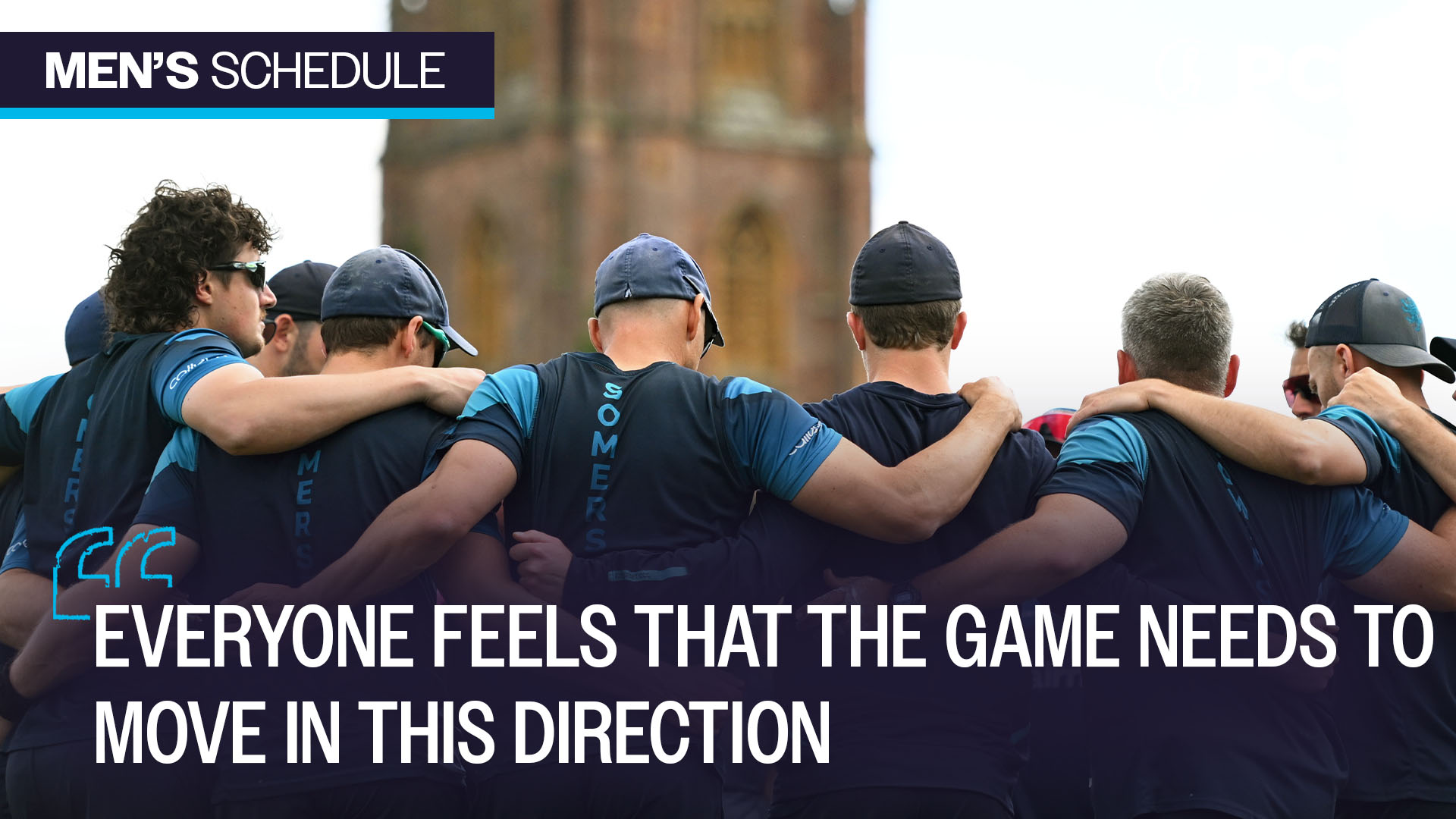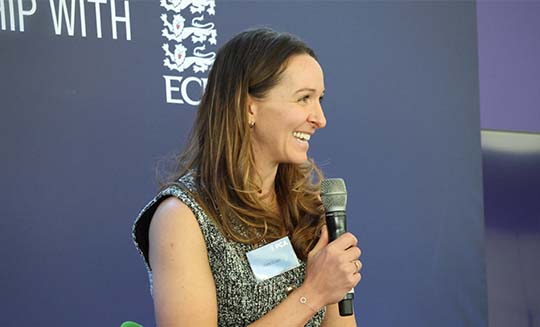PCA PRESS RELEASE
Men’s players across the country urge counties to prioritise welfare in vote.
To see more articles, click here
As the men’s county game enters a crucial phase regarding the future of its domestic structure, the PCA is urging county Chairs and CEOs to prioritise the welfare of their key employees – the players, ahead of the voting process.
The second consultation meetings between all professional counties have concluded where informed debate saw counties discuss their preferences across the Rothesay County Championship, Vitality Blast and Metro Bank One Day Cup.
The views of players formed part of every meeting with the Association representing the majority view and emphasising the need for reform of the schedule to prioritise player welfare whilst improving performance levels to invigorate county cricket.
PCA VIDEO
Players discuss need for reform
Hear from PCA Reps Chris Woakes and Sam Cook, along with Chair Olly Hannon-Dalby, Jacob Bethell as well as views from pre-season from John Turner and Ben Foakes.
Following the conclusion of the consultation, PCA Chair and Warwickshire bowler Olly Hannon-Dalby sent letters to all 18 Chairs and Chief Executives of the professional counties, urging them to prioritise their duty of care to their employees following a clear mandate to restructure the domestic schedule.
Research from the PCA’s most recent pre-season meetings shows 83 per cent of players expressed concerns about their physical wellbeing with 67 per cent of players concerned about their mental wellbeing due to the volume and intensity of domestic cricket.
Further data collected showed that 72 per cent of players believe the current schedule is not conducive to high performance, along with 77 per cent of stating too much domestic cricket is played. All statistics have risen since 2024.
"The right decision would serve to future-proof our game with clarity and commitment to a new era.”
DARYL MITCHELL, PCA CHIEF EXECUTIVE
PCA Chair, Olly Hannon-Dalby, said: “We are at a critical moment regarding the future of professional cricketers in England and Wales. The schedule has always been a contentious issue and we have seen too many reviews with no change but the feeling in recent seasons due to ever-increasing intensity of fixtures has led the game to a position where positive action has to be taken immediately and as an opportunity for the game to grow.
“We understand the process is not straightforward and all counties have their own prerogative, however, the game needs to come to a consensus on a way forward to prioritise a duty of care to its players who are asking for reform, not just for their own health but also for an improved product on the field.
”We have over 400 male players and we recognise the different career paths available and to protect the majority, a change in format of the County Championship to 12 league games is the only reasonable option and would breathe new life into what I believe would become the best red-ball competition in the world.”
PCA Chief Executive, Daryl Mitchell, said: “Cricket has always been an incredibly innovative sport and relaunching the Blast and Championship with an optimum schedule would see clubs, supporters and players benefit from being involved in world-leading domestic cricket.
“We have been pleased the consultation has provided space for player views to be heard and there is a consensus that back-to-back Blast games need to be drastically eased with the aim for the competition to change to 12 regional group games.
“With the One Day Cup to stay alongside The Hundred, the congestion of the intense schedule cannot be improved enough by losing two 20-over games across a six-month season alone.
“As employers, every county needs to understand the player concerns while looking at the positive outcome a 12/6 split would have in the Championship. The welfare of the players should be at the heart of the decision-making process and we urge all county Chairs and CEOs to consider this when taking their vote.
“Ultimately, the right decision would serve to future-proof our game with clarity and commitment to a new era.”
"The game needs to move in this direction to allow everyone to basically work in a better environment.”
CHRIS WOAKES, PCA ENGLAND MEN’S REPRESENTATIVE
PCA England Men’s Representative, Chris Woakes, said: “We would like to reiterate that the players aren’t trying to play less cricket because they don’t want to – it’s about being able to produce the best cricket on the field as possible.
“Welfare is extremely important and not just players but coaches and staff. We need to get the scheduling right to give players the time to prepare, recover and make sure they’re in the best state physically and mentally.
“The game is now played at a greater intensity and faster rate, especially in white-ball cricket. When you’re having to play back-to-back games it’s almost impossible to be at 100 per cent. Having gaps between games and with safe travel is very important.
“I think everyone can sometimes can get in their own little bubble. Looking at people who are going to be making the decisions, just hopefully they can take all of that on board and think that the bigger picture will be better for the game.
“From a player’s perspective, I know from talking to a lot of the other players, both young and old, everyone feels that the game needs to move in this direction to allow everyone to basically work in a better environment.”
PCA Essex Representative and England bowler, Sam Cook, said: “We’ve had issues with the schedule for a while but it seems things are going in the right direction. It’s a big couple of weeks to make sure that the game gets those decisions right.
“It’s about reaching a balanced, informed view. The Reps have had a lot of debate but the overwhelming collective opinion is there needs to be a reduction from a welfare point of view. You hear stories of people driving at three, four o’clock in the morning in the middle of back-to-back games, which from a health and lifestyle perspective is not right. We want to see these decisions made before something serious happens.
“We’re not able to perform to the highest level we can due to the current schedule. We’ve got some amazing talent and brilliant cricketers in the country. And we really want to express that as best we can. I think with reducing cricket, fans and supporters will see the standard go up.
“The mental health aspect is also very important, the Cricketers’ Trust supports more cricketers year on year and the decision makers have a responsibility to listen to those statistics.”












